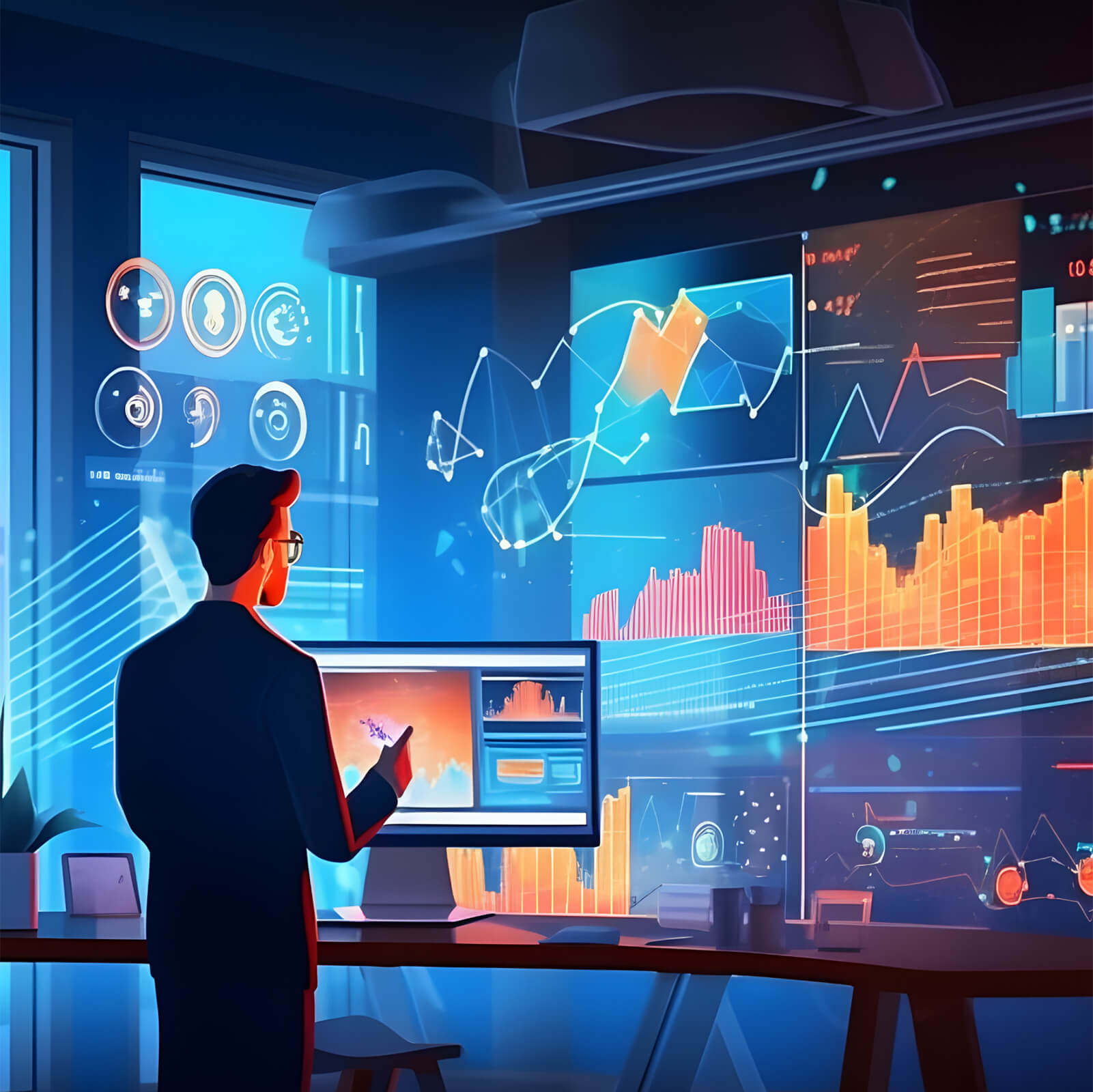
The former mayor of Denver, Colorado Wellington E Webb poignantly noted, “The 19th century was a century of empires, the 20th century was a century of nation states and the 21st century will be a century of cities.”
What’s missing here is an important addendum: the 21st century will be about smart cities.
Nothing else surmises the need to build Smart Cities than the following statistics:
- Tokyo, which is home to over 36 million people, would be the world’s 35th biggest (in terms of population) if it were a country. It is also the largest urban economy in the world by GDP.
- The top 600 urban centers generate more than 60% of the world’s GDP.
Many of these seemingly sprawling metropolises have glaring issues that make them increasingly unlivable with every passing day.

Smart cities help address this very fatal flaw prevailing in urban spaces.
Many of our day-to-day activities are aided or even governed by the many technologies that surround us; with nothing so prevalent as the internet is in our lives. Smart cities are the inevitable natural progression to civilizational progress and we must not hinder discussions over it as if it was one of Isaac Asimov’s machinations.
What makes a city a smart city?
A Smart City is a future-focused urban framework bringing forth solutions to every aspect of urban life, with the help of a connected infrastructure. It uses data, digital tools, and human-centered design to create a great experience for its residents, as well as help with city-level decision-making.
Smartphones – a device most people in urban spaces are privy to owning – gives us a peek into what a smart city’s solutions would look like. Right from booking a cab, instantly having a plethora of information at your fingertips, and accessing health services, everything is tending towards the ‘digital’ these days. Who in the early 21st century would have thought that we would be able to book a taxi from a mobile phone without having to make a phone call? The use cases for digitizing things are endless. Imagine if we could extrapolate all of this technology and more into building facilities and solutions for cities around the world. What you’re left with in the end is a smart city.
A myriad of technologies is used to build a smart city allowing it to thrive while using the least amount of resources. Every device can be connected to the Internet to devise a variety of solutions to conventional problems. Innovations like smart waste management systems, smart traffic solutions, public safety, smart metering, smart water conservation systems, environmental monitoring sensors, smart lighting systems, smart parking solutions, etc., will help enhance the quality of our lives in ways that would have been unimaginable earlier.
Why do we need smart cities?
#1 Data-driven decision-making
With the aid of interconnected IoT, we will be able to tap into the collective intelligence of the city by capturing localized bits of knowledge, ideas, data, and opinions which will allow us to make data-based & thought-out decisions. We will get access to information that might have been impossible to gather earlier. From knowing when a streetlamp requires replacement to self-healing grids, you will be able to make intelligent decisions across the board.
By being in the know about such data, the city will function more efficiently, resulting in an improvement in most quality-of-life parameters. The ability to forecast will also help in cutting costs dramatically while providing better services to people.
The city of New York has created a tool called the NYC Business Atlas. It provides access to high-quality data to its citizens, with even the government using it to make decisions. Entrepreneurs and small business owners are given free access to market research data and analytics. It also helps in the creation of new jobs for NYC’s residents. Not only does it provide access to data, but offers sophisticated analytics and visualization tools that help an entrepreneur understand the potential of starting a business in a particular locality in the city.
#2 Reduced carbon footprint
Smart cities will equip spaces with air quality sensors, lead to the construction of energy-efficient buildings, and the utilization of renewable energy resources that will reduce a region’s environmental footprint. A report from Juniper Research says that traffic and parking management in smart cities will reduce global carbon dioxide emissions by 164 million metric tonnes (MMT) in the next five years. 165 MMT is equal to the emissions of 35 million vehicles annually.
#3 Urbanization
The anticipated complexities – such as negative effects on the environment, valid concerns over the physical safety and security owing to overcrowded living conditions, more pressure on food supply systems, and the expenses associated with urbanization – are greatly reduced when there is a structure for developing smart cities. The United Nations says that by 2030, the world is expected to have 43 megacities, each with at least a 10 million population, with most of these in developing countries.
A smart city successfully covers the following areas: sustainable urban development, sustainable building, and equipment, smart network infrastructures, provision of urban services, and collective efforts of collecting data by the citizens and government.
A report by IFPRI (International Food Policy Research Institute) states that more than half the world’s population will be at risk due to water stress by 2050 if we maintain the status quo in terms of water consumption. Steps taken by the state of California in the United States, which used smart water solutions to reduce home water consumption by 5 percent, can help offset this environmental impact. This reduction is expected to have helped a long way in meeting the 20 percent statewide water reduction per capita goal. For an oft-drought-hit state like California, these are encouraging numbers.

#4 Better transportation
The Intelligent Transportation System (ITS) for smart cities has unique approaches when it comes to transportation modes. Traffic management solutions and advanced infrastructure use a medley of wireless and communication technologies to improve traffic conditions. All of this ensures that the citizens have a much more advanced and safer way of traveling.
Singapore’s ITS system delivers real-time traffic alerts to the public, making it one of the least congested cities in the world. The city of New York has invested in cameras and sensors at more than 10,000 city intersections. It has also deployed a Connected Vehicle Pilot Program which collects and analyzes data of connected vehicles to help improve safety and traffic management in real-time. According to a report by KPMG titled ‘2020 Autonomous Vehicles Readiness Index’, the United Arab Emirates scores the highest in change readiness for technology infrastructure. The UAE is also taking steps to make 25 percent of its transport autonomous by 2030, a strategy that was put forth back in 2016.
#5 Better economic opportunities
A report by Chordant titled ‘Role of Smart Cities for Economic Development’ mentions that smart cities could increase cities’ economic development by more than 5% and drive at least $20 trillion in economic benefits by 2026. Successfully implementing smart city solutions brings many financial benefits to its citizens.
Urban centers are the engines of economic growth and prosperity. By building Smart Cities, you will attract the brightest minds, giving rise to more channels for economic prosperity. It will lead to continued growth which can tackle competition from the rest of the world. A smart city should be able to balance the increasing need for better infrastructure and also keep its citizens safe and secure.
Thanks to technologies like IoT and AI, automation of a city’s resources is possible. Every connected device results in the city’s performance getting improved, not to mention the fact that all of this directly affects the citizens positively.
Smart buildings can even generate their own electricity and heating, thus saving resources, increasing sustainability, and boosting the economy. Thanks to a sustainable ecosystem that a smart city creates, people will lead happier, healthier, and more satisfying lives.
Conclusion
Smart cities will have a transformative effect on every aspect of our lives, from better and improved healthcare to the effective provisioning of public services. They address the real needs of the city’s residents and create solutions that are durable, easy to implement, and scalable from a small pilot to a city-wide experiment. The combination of technologies like IoT, AI, ML, Big Data, Robotics, Drones, 3D printing, Blockchain, SMAC, etc., are extremely powerful and create the perfect ingredients for disruptive innovation.
The global smart cities market size is expected to grow from 410.8 billion USD to 820.7 billion USD by 2025. Building a city, using a radical concept like that of a smart city is more a responsibility than something that should be driven by pure numbers. But with the right intention and resources, building sustainable smart cities is a possibility. Singapore, Dubai, Oslo, Copenhagen, Boston, Amsterdam, New York, London, Hong Kong, and Barcelona are considered some of the best smart cities in the world. If you are looking for smart city solutions, we have the wherewithal and expertise to get things started. Get on a call with us to understand how we can help you.
Case Studies
Let our work do the talking
Learn about the instances where we were able to create an impact, raising the bar on the standards we set for ourselves.

PiServe — Revolutionizing the versatility of technology in the corporate world
Curated Technologies. Design at Heart. Rapid business Transformation
Insights
The information technology times
Have a read on groundbreaking figments of imagination of the brightest minds that have been brought to life.
How can we help you?
Get in touch and let’s find out how we can curate our offerings to match your organization’s needs.
Get in touchSign up for our latest insights.
Never miss an insight. We’ll email you when new articles are published.
Subscribe.
Thanks for subscribing to PiServe Insights.
Please fill in the details.










